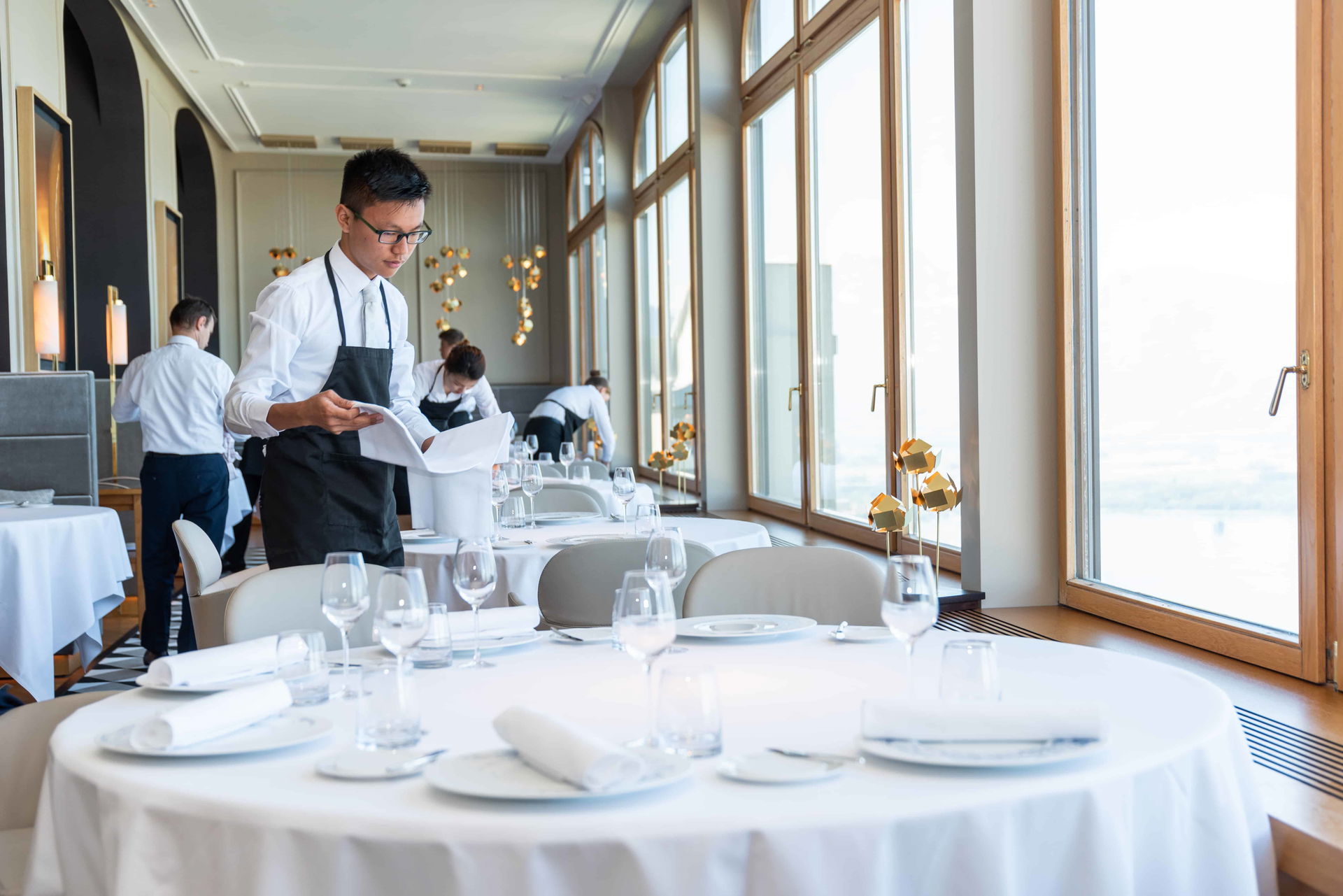The Case for Learning Etiquette

Georgette Davey, Managing Director of Glion Institute of Higher Education, explains why etiquette is an essential modern-day skill.
Since the wedding of Meghan Markle and Prince Harry, several news pieces have emerged on how the American is expected to behave now that she is a member of the British royal family. Commentators have drawn attention to royal traditions that guide what to eat (no garlic), how a female member of the royal family should dress while in public with the Queen (favouring pastels and neutral colours) and how she should sit (preferably by crossing legs at the ankles or practising the “duchess slant”).
Etiquette as a shared language
As the above example show, etiquette matters. What’s more, etiquette spans a broad range of behaviours, choices and actions. It includes body language, manners, appearance, interpersonal skills and official protocol.

In the public eye, following etiquette and protocol is key to both demonstrating and earning respect. But etiquette is needed not only by royals, politicians and diplomats. It is a universal language that facilitates daily interactions in business and society. After all, it’s harder to negotiate over a meal if you’re worried about which fork to use.
Meanwhile, in today’s globalised world, knowledge of international etiquette is crucial to avoid miscommunication or committing a cultural faux pas. Greetings, punctuality and table manners are all examples of customs that vary across cultures. But how does one learn etiquette?
Understanding the value of etiquette
Etiquette — that combination of manners, emotional intelligence and soft skills, or Savoir-Vivre and savior-être, as the French say — is not learned through books, but by practice. At Glion Institute of Higher Education, our hospitality management students internalise etiquette through practical experience, including service roles on campus and professional internships completed abroad. Specific guidelines also help: Anthony Durand, Senior Lecturer and Manager Banqueting, Events and Boutiques, identifies the following six habits as prerequisites to business protocol:
- Be on time
- Be discreet
- Be courteous, pleasant and positive
- Be concerned with others
- Dress appropriately
- Use proper written and spoken language
Practice makes perfect
“I strongly believe in learning by doing,” Mr Durand says. “At Glion, students develop their sense of etiquette naturally as they take on responsibilities such as welcoming visitors in our lobby or serving guests in our gastronomic restaurant. They learn to look their best as they follow our business dress code daily. They are mentored by our faculty, but ultimately, it is through experience that they come to understand l’art de recevoir, the art of welcoming, and how to act appropriately in a variety of contexts.”
In the business world, first impressions are particularly important. For this reason, Glion’s dedicated careers department arranges mock interviews and advises students on business etiquette ranging from appearance to body language and communication.
A process of continuous learning
Of course, etiquette is also continually evolving, influenced by shifts in technology and culture. “The paper invitations sent to announce social events in the past are today often replaced by social media invites or mobile messages, and ‘netiquette’ now has its own set of rules,” Mr Durand observes. “Meanwhile, globalisation has led to a wider appreciation of etiquette across cultures — for example, nowadays many business professionals in Europe know that in East Asian culture, they should use both hands when presenting business cards, but that awareness was less common just a decade ago.”
International exposure is key to understanding cultural differences in business and social etiquette. At Glion, students learn alongside classmates who represent around 90 different nationalities, enabling them to exchange experiences of protocol and etiquette around the world and continuously learn from each other.

The importance of etiquette is particularly evident in multilingual, multicultural Switzerland, which is home to many of the world’s international organisations. At global forums such as the United Nations, etiquette plays a vital role in preventing misunderstandings and ensuring that all feel welcome.
From meetings to the dining table, protocol and manners pave the way for conversations to be had and decisions to be made. Far from old-fashioned, etiquette is a shared code of respect, an attitude and a lifelong skill — one from which we can all benefit.
About the author

Georgette Davey serves as Managing Director of Glion Institute of Higher Education, a leading hospitality management institution with campuses in Switzerland and the UK. She has more than two decades of experience in academic leadership and hospitality management.
